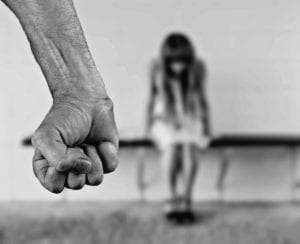
Having just looked at the long term effects of foster care, we felt it was also necessary that we take a look at the long term effects of abuse on children. While we are very pro-parent in our approach to CPS defense, and we believe very strongly that it is a parent’s right to raise their children as they see fit, we are not unaware of the fact that child abuse is a very real problem.
For that reason, we are going to take a look at the effects that abuse has on a child over the course of their life, and discuss how that could impact their future. Current statistics reveal that about one in four children will experience abuse before they reach their eighteenth birthday. This could include, physical, sexual, emotional, or psychological abuse, or neglect.
The immediate effects of abuse are more well known. From bruises, broken bones and burns on the physical spectrum, to depression, anxiety and aggression on the psychological one, many people are familiar with how the symptoms of abuse are manifested in children. One of the very important points to remember, when considering these symptoms, is that while they may be separated into different categories, they are not unrelated.
Physical consequences, like damage to a child’s developing brain, can have psychological implications, such as cognitive delays or emotional difficulties. In the same way that sexual assault may leave physical marks, but it will also leave psychological damage that will take far longer to heal.
But what about when they grow up? What happens when they get older, and reach adulthood? Do those effects linger, or do they manifest in different ways over time? The federal government has invested considerable time and resources into a number of ongoing studies about the long-term consequences of child abuse and neglect. The results they have gathered thus far, as a result of those studies, are both fascinating and disheartening.
Before you can properly investigate what the long term consequences will be, you have to take into account which type of abuse a child has suffered. According to the Child Welfare Information Gateway, there are four main factors that influence and affect the consequences of abuse and neglect. They are:
- The child’s age and developmental status when the abuse or neglect occurred
- The type of maltreatment (physical abuse, neglect, sexual abuse, etc.)
- The frequency, duration, and severity of the maltreatment
- The relationship between the child and the perpetrator
These four factors will substantially affect the way in which a child suffers as a result, and to what extent. Another factor is “resilience”, although researchers are only recently beginning to look at how resilience factors into a child’s ability to “bounce back” after sustaining abuse, and why some children have more of it than others.
According to researchers, under similar conditions, there are some children who experience long-term consequences of abuse and neglect, while others are able to emerge mostly unscathed. Thus far, no one is certain why some children seem to have an ability to cope in the face of trauma and some don’t. Thus far, we don’t have answers for that question, but we do have a considerable amount of information available regarding the long term effects of child abuse and neglect.
Join us next time, as we unpack this difficult and complex issue, and look at some of the long term consequences of child abuse. Until then, if you or a loved one are accused of child abuse or neglect, or are engaged in a battle with CPS, we are here to help.
As experienced Michigan CPS defense attorneys, we have represented countless falsely accused parents and caregivers over the decades. Nothing is more tragic than watching someone struggle against false accusations and lies that end up costing them their family. So if you or a loved one have been falsely accused of abusing or neglecting a child, you are going to need a highly skilled defense attorney on your team. The right attorney is critical. Call us today at 866-346-5879. We can help you.

